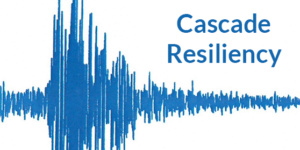Cascade Water Alliance works with water supply providers on the local, state and federal level to ensure critical legislation is adopted that will aid in delivery of safe reliable water to benefit ratepayers and water supply.
Cascade is also a member of the Central Puget Sound Water Supply Forum (“Forum”) that, with water utilities in King, Pierce and Snohomish counties, addresses current and future water supply issues, including supply system resiliency, planning, policy and regulation, and environmental stewardship.
A water utility’s resiliency – the ability to provide an uninterrupted supply of safe, clean water – can be affected by natural occurrences such as earthquakes, drought, climate change, and water quality conditions. The Forum embarked on a project to help proactively evaluate the region’s water supply systems’ resiliency and plan for potential disruptions, particularly due to earthquakes.
The Forum is also reminding the public that businesses, schools, government, and individuals have an important role in disaster preparedness. During the first few hours or days following a disaster, essential services may not be available. Therefore, people need to be ready to act on their own for at least two weeks, including having two weeks’ supply of water.
At its October 2021 meeting, the Forum presented results of a survey about development practices and its updated capital improvement projects (CIP) list. Below are the links to both documents. The development practices survey is intended for informational purposes and will likely be conducted on a regular basis. The CIP list is part of a multi-year comprehensive strategy to obtain state and federal funding needed to ensure regional drinking water systems are seismically resilient and can recover rapidly after an event.
Cascade Resiliency
Cascade and its members have been working together over the past several years to develop resiliency efforts to address water delivery issues in Cascade’s service area following in an earthquake or other emergency. Over the past two years, the focus has been on meeting the EPA’s America’s Water Infrastructure Act (AWIA) requirements which requires utilities to conduct a Risk and Resiliency Assessment (“RRA”) of their community water systems and develop or update a corresponding Emergency Response Plan (“ERP”).
Cascade, Bellevue, Sammamish Plateau Water, and Issaquah are also collaborating on efforts to respond to emergencies regarding the Bellevue-Issaquah Pipeline (BIP). The BIP is a fully buried 24-inch diameter transmission pipeline, supplying water to Sammamish Plateau Water and Issaquah and physically within the boundaries of Issaquah and Bellevue.


